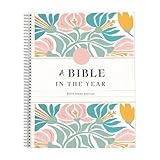
Your Go-To Support for Smarter Revision
Study guides are a brilliant resource for students preparing for exams or simply trying to get a clearer understanding of their subjects. Whether you’re revising for GCSEs, A Levels, or college-level qualifications, study guides help break down complex topics into easy-to-follow sections, making learning feel less overwhelming and more manageable.
Browse Study Guides
SaleBestseller No. 1
Bestseller No. 2
SaleBestseller No. 3
SaleBestseller No. 4
Types of Study Guides Available
- Subject-Specific Guides – These focus on individual subjects like English, Maths, Biology, History and more. They follow the curriculum closely and often align with specific exam boards such as AQA, Edexcel or OCR.
- Course Text Companion Guides – These go hand-in-hand with the main course textbooks and help summarise key content, explain tricky concepts, and offer tips on how to tackle certain types of questions.
- Skills-Based Study Guides – These focus on improving essential academic skills such as essay writing, exam technique, analysis, and interpretation – perfect for subjects like English Literature or Sociology.
- Quick Revision Guides – Condensed versions that highlight key facts, formulas, and summaries – ideal for last-minute revision or quick refreshers.
Browse Edexcel Study Guides
SaleBestseller No. 1
SaleBestseller No. 2
SaleBestseller No. 3
SaleBestseller No. 4
View More Edexcel Study Guides
What Are Study Guides Used For?
- Reinforcing Classroom Learning – Great for reviewing topics after lessons to help things sink in more clearly.
- Simplifying Difficult Topics – They often explain things in a more digestible way, using plain language, visuals, and examples.
- Helping with Exam Prep – Many include practice questions, sample answers and examiner tips to give you a better idea of what’s expected.
- Structuring Revision – Study guides help you organise your time and tackle topics methodically, so nothing is missed.
How to Get the Best Out of Your Study Guide
- Use it Alongside Class Notes – Don’t rely on the guide alone – use it to support and reinforce what you’ve already learned.
- Highlight and Annotate – Make notes, underline key points, and summarise information in your own words to help it stick.
- Test Yourself Regularly – Take on the practice questions and use the answers to check your understanding.
- Make it Interactive – Turn key facts into flashcards, mind maps, or quick quizzes to make revision more engaging.
Study guides can be a real confidence booster when used properly. With the right guide and a bit of active study, you’ll feel more prepared, more focused, and far less stressed when exams come around.
Browse Modern Languages Study Guides
SaleBestseller No. 1
SaleBestseller No. 2
Bestseller No. 3
SaleBestseller No. 4
View More Modern Language Study Guides















